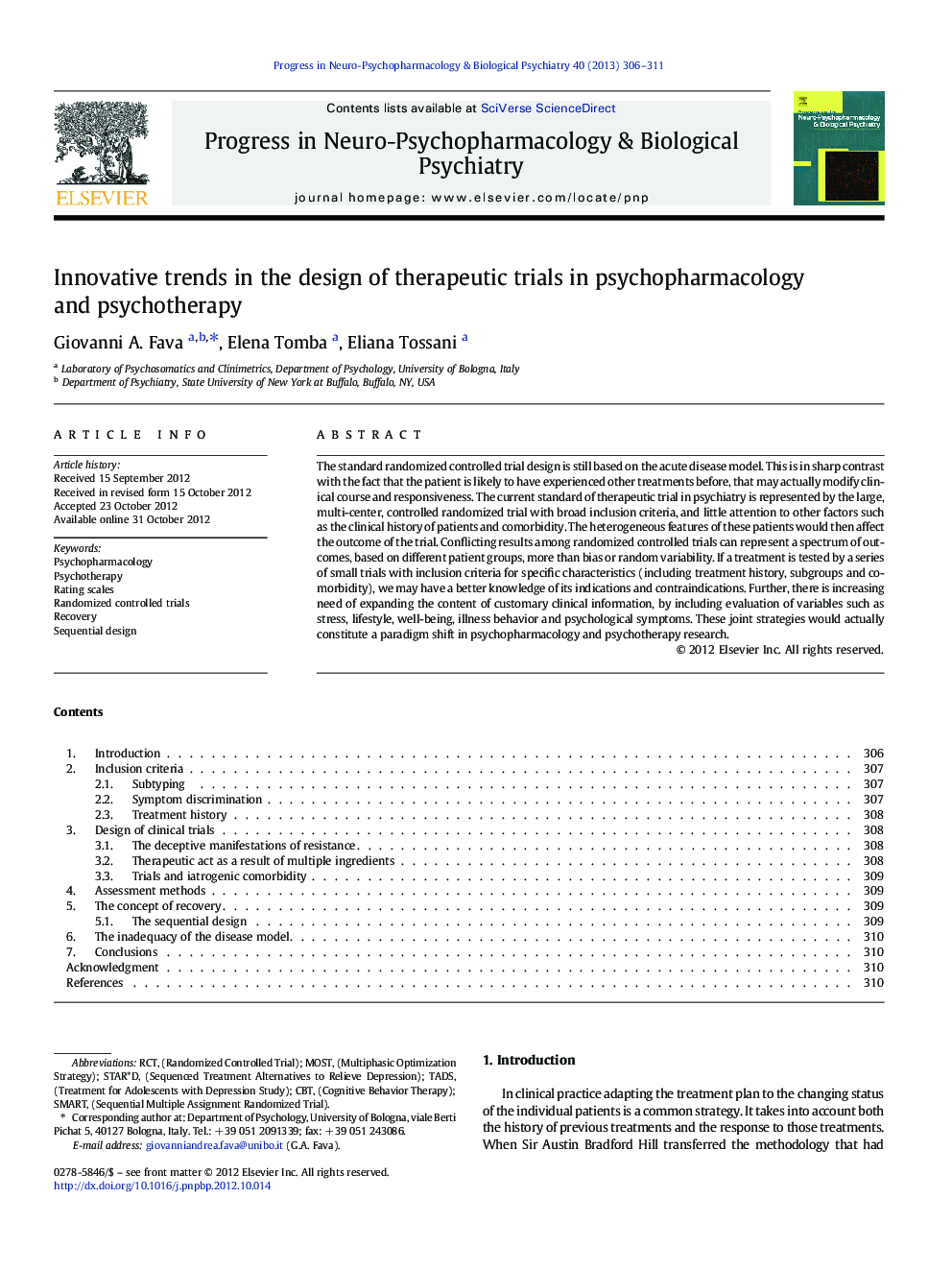| Article ID | Journal | Published Year | Pages | File Type |
|---|---|---|---|---|
| 2564939 | Progress in Neuro-Psychopharmacology and Biological Psychiatry | 2013 | 6 Pages |
The standard randomized controlled trial design is still based on the acute disease model. This is in sharp contrast with the fact that the patient is likely to have experienced other treatments before, that may actually modify clinical course and responsiveness. The current standard of therapeutic trial in psychiatry is represented by the large, multi-center, controlled randomized trial with broad inclusion criteria, and little attention to other factors such as the clinical history of patients and comorbidity. The heterogeneous features of these patients would then affect the outcome of the trial. Conflicting results among randomized controlled trials can represent a spectrum of outcomes, based on different patient groups, more than bias or random variability. If a treatment is tested by a series of small trials with inclusion criteria for specific characteristics (including treatment history, subgroups and comorbidity), we may have a better knowledge of its indications and contraindications. Further, there is increasing need of expanding the content of customary clinical information, by including evaluation of variables such as stress, lifestyle, well-being, illness behavior and psychological symptoms. These joint strategies would actually constitute a paradigm shift in psychopharmacology and psychotherapy research.
